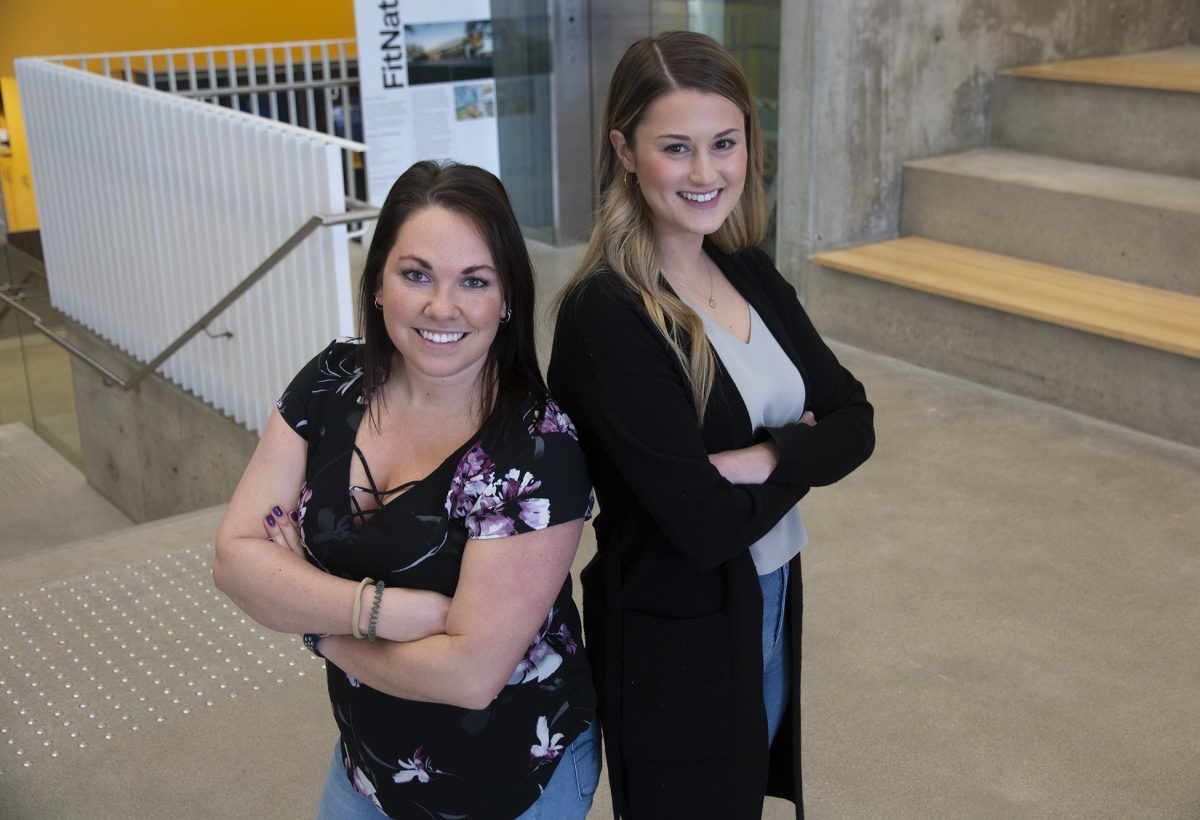
Sarah Bohunicky (left) & Alana Signore.
3MT postponement won’t stop FKRM finalists
Editor’s note: The 3MT Finals will now be live-streamed June 3 starting at 7 p.m.
Although the University of Manitoba’s Three Minute Thesis (3MT) final is currently postponed, two of the finalists from the Faculty of Kinesiology and Recreation Management will be ready take the stage once their name’s are called.
Sarah Bohunicky is a master’s student with a focus on athletic therapy. Her thesis, “Shoulder Pain: Can we reduce risk in only 4 minutes”, aims to determine whether a four-minute massage can reduce a person’s risk factor in the development of neck and shoulder pain.
“It’s amongst the most common pain people tend to have,” added Bohunicky.
Alana Signore, a master’s student studying psychology and physical activity, is presenting “Teaching self-compassion for people with pre-diabetes.” It’s about teaching people living with pre-diabetes the value of self-compassion and coupling that with behaviour-change skills lessons.
“We want to see if self-compassion augments this training to increase physical activity and wellness. It’s an intervention,” said Signore.
The University of Manitoba is taking measures to help prevent the transmission of COVID-19 on its campuses and in the wider community, and, ultimately, to support the province’s health care system.
For that reason, the 3MT competition final, scheduled for March 24, has been postponed for the time being. The French event, Ma thèse en 180 secondes, scheduled for April 6, has also been postponed.
The duo said they’ll soak in the extra time to prepare even more for the final when it takes place.
“Going to practice any chance I get,” said Bohunicky, with Sigmore nodding in agreement.
Three Minute Thesis is an international research communication competition developed in 2008 by The University of Queensland (UQ). Graduate students have three minutes to present a compelling oration of their thesis and its significance. 3MT is not an exercise in trivializing research, but instead it is a challenge to students to consolidate their ideas and research discoveries so they can be presented concisely to a non-specialist audience.






